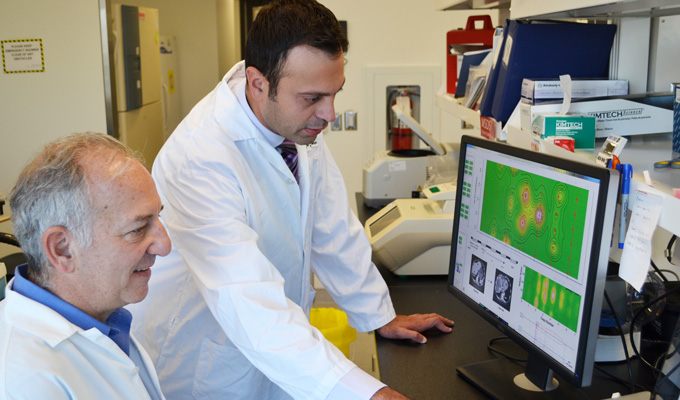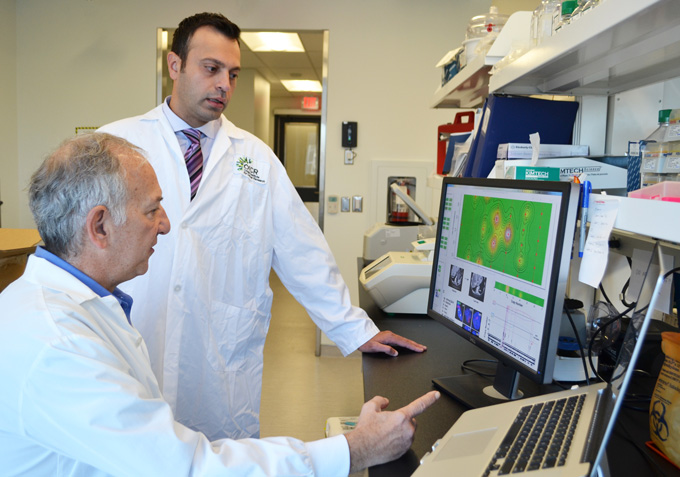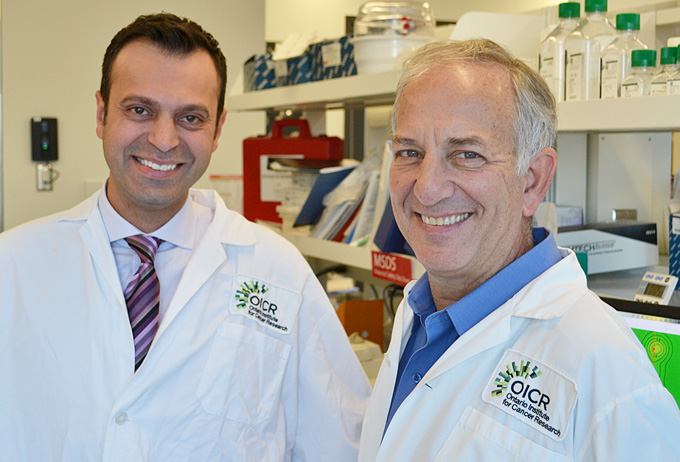
The findings provide important insights into how pancreas cancer develops and spreads and new strategies for better understanding one of the mostly deadly types of cancer.
Toronto (October 12, 2016) – Researchers in the multidisciplinary PanCuRx research initiative at the Ontario Institute for Cancer Research (OICR) and University Health Network’s Princess Margaret Cancer Centre, led by Dr. Faiyaz Notta and Dr. Steven Gallinger, today published new findings that challenge current beliefs about how and why pancreas cancer is so aggressive.
This deadly disease often strikes “out of nowhere,” and the cancer is often inoperable by the time the patient experiences symptoms. Pancreas cancer’s tendency to appear at an advanced stage had long been a medical mystery. Using whole genome sequencing, the team reconstructed the history of pancreas cancer development in 100 independent tumours. Unexpectedly, they found that many of the important alterations that are thought to cause this disease actually occur “all at once”, similar to the idea of the “big bang”. The results were published in the journal Nature (doi:10.1038/nature19823).

Pancreas cancer is a highly aggressive and deadly form of cancer. It is expected to be the second leading cause of cancer-related death by 2030. Improving clinical outcomes has proven stubbornly difficult, highlighting the urgent need for scientific advances.
“When we started this project many years ago, we wanted to make better sense of how this disease progresses clinically,” said Dr. Notta, an OICR Fellow, Principal Investigator at the Princess Margaret and lead author of the study. “This disease can go from being a local cancer, restricted to the pancreas, to becoming fully metastatic very rapidly. The traditional view of the biology of the disease just didn’t jive with what happens clinically. And it’s hard to move forward in trying to find new treatments if you can’t link the biology of the tumour to the clinical reality of the disease. Our findings show a very different path for how this disease develops and puts the clinical problem of this disease into better perspective. We can make more sense about why this disease is so aggressive and can advance so quickly.”

“I congratulate these researchers who are working tirelessly to better understand how pancreas cancer develops and spreads. Their hard work and new findings offer hope to people diagnosed with this disease and their loved ones in Ontario and around the globe.” – Reza Moridi, Minister of Research, Innovation and Science.
“Pancreas cancer is one of the most deadly types of cancer and still one of the least understood,” said Dr. Gallinger, Head of Hepatobiliary/Pancreatic Surgical Oncology Program at UHN and Mount Sinai Hospital and leader of PanCuRx. “These findings provide us with a new understanding of how pancreas cancer develops and a path forward to identify better strategies to diagnose and target this terrible disease.”
The findings open up important new pathways of investigation that could lead to the ability to better diagnose pancreas cancer, predict how it will develop and determine how and when it will metastasize. The findings could also be applicable to other aggressive tumour types. New approaches to diagnosing and treating pancreas cancer using this information could lead to better outcomes for patients.
